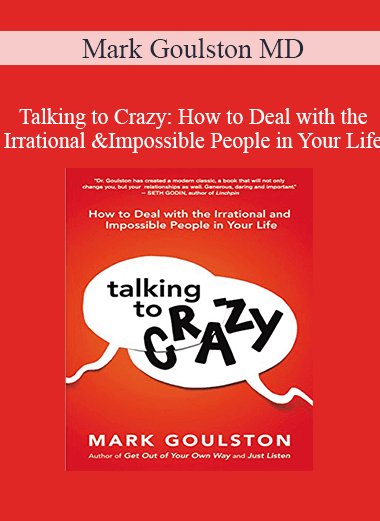How To Deal With Irrational People

Navigating interactions with individuals exhibiting irrational behavior can be challenging, both in personal and professional settings. Understanding strategies for de-escalation and communication is crucial for maintaining healthy relationships and productive environments. Experts emphasize the importance of empathy, active listening, and setting clear boundaries when dealing with irrationality.
The ability to effectively manage interactions with irrational individuals is increasingly vital in today's polarized world. This skill impacts workplace dynamics, family relationships, and even civic discourse. Experts across fields like psychology, conflict resolution, and communication provide valuable insights into understanding and navigating these complex situations.
Understanding Irrationality
Irrationality, in this context, doesn't necessarily imply a mental health diagnosis. Instead, it refers to behavior driven by emotions, biases, or distorted thinking, deviating from logical reasoning. This can manifest as outbursts, stubborn refusal to acknowledge facts, or persistent arguments based on flawed premises.
According to the American Psychological Association (APA), understanding the underlying causes of irrational behavior is the first step in managing it. "Often, fear, anxiety, or a feeling of being threatened can trigger irrational responses," the APA states in its guidelines on stress management.
Strategies for Effective Communication
One of the most effective strategies is active listening. This involves paying close attention to the speaker, acknowledging their feelings, and summarizing their points to ensure understanding. Demonstrating empathy, even if you don't agree with their perspective, can help de-escalate the situation.
"Validating their emotions doesn't mean you agree with their viewpoint," explains Dr. Sarah Chen, a conflict resolution specialist. "It simply acknowledges their feelings are real to them, which can help them feel heard and understood."
Setting Boundaries
Establishing and maintaining clear boundaries is crucial for protecting your own well-being. This includes limiting the amount of time spent engaging with the individual and clearly stating what behaviors are unacceptable.
Avoid getting drawn into circular arguments or engaging in power struggles. Politely disengage when the conversation becomes unproductive or disrespectful. "You have the right to protect your mental and emotional space," asserts relationship therapist, Mark Johnson.
De-escalation Techniques
When faced with an irrational outburst, avoid reacting defensively or escalating the situation. Speak in a calm, even tone and use "I" statements to express your feelings without blaming the other person. For example, instead of saying, "You're being unreasonable," try saying, "I feel frustrated when the conversation goes in circles."
Take a break if necessary. Stepping away from the situation allows both parties to cool down and regain composure. Sometimes, a brief pause is all that's needed to reset the interaction.
When to Seek Professional Help
There are instances where managing irrational behavior requires professional intervention. If the behavior is persistent, severe, or poses a threat to oneself or others, seeking guidance from a mental health professional is essential.
Furthermore, if the irrational behavior is affecting your own mental health and well-being, it's important to prioritize your own needs and seek support. This could involve therapy, counseling, or simply setting firm boundaries with the individual.
The ability to navigate interactions with irrational individuals is a valuable life skill. By understanding the underlying causes of irrationality, employing effective communication strategies, and setting clear boundaries, individuals can foster healthier relationships and more productive environments. Seeking professional help when necessary is also crucial for ensuring the well-being of all involved.


















